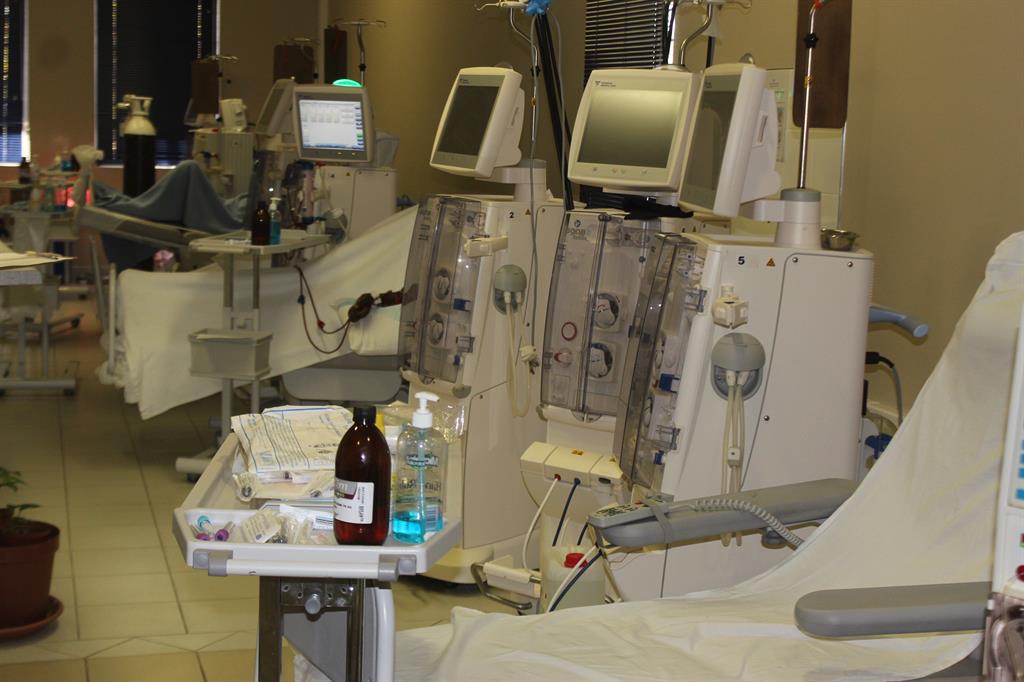Diseases batter Namibians
The probability of a 30-year-old male dying from any of the four major non-communicable diseases in Namibia is higher than for women.
More than 1.3 million people required interventions against non-communicable diseases in Namibia in 2017.
Meanwhile, the probability of a 30-year-old dying from cardiovascular disease, cancer, diabetes and chronic respiratory ailments before reaching the age of 70 stands at 21.3%.
This is according to the latest global health statistics released by the World Health Organisation (WHO).
The global health statistics, published annually since 2005, is the WHO's annual snapshot of the state of the world's health.
According to the report the probability of a 30-year-old male dying from any of the four major non-communicable diseases in Namibia is higher than for women. Men have a 24.7% probability of dying from one of the diseases and women an 18.7% chance.
According to the report a total of 1.103 million people in Namibia required interventions against non-communicable diseases in 2017.
The report says that non-communicable diseases collectively caused 41 million deaths worldwide in 2016, equivalent to 71% of all global deaths. Globally in 2016, the risk of a 30-year-old person dying from any of the four major non-combinable diseases before reaching the age of 70 was 21.6% for men and 15% for women. The highest risks of premature death from non-communicable diseases were seen the WHO's South-East Asia Region for men (26.5%) and the African Region for women (20.1%), whereas the highest risks by national income were in the lower middle-income countries for both sexes (26.6% for men and 19.9% for women). The risk of death from non-communicable diseases increases with age, says the report.
Overall, in 2016 men were more likely than women to die from all four major non-communicable diseases, except in the African Region and the Eastern Mediterranean Region, where women had higher age-standardised rates of premature death from cancer than men, and in the Western Pacific Region and the Eastern Mediterranean Region, where female death rates from diabetes were higher.
From 2000 to 2016, the risk of premature non-communicable disease death decreased. The relative declines were slightly larger for women (19%) than for men (18%).
Biological differences between men and women are the main reasons for the variation in the risk of death from some non-communicable diseases, such as cancers of organs associated with reproduction (e.g. cervical, breast, prostate and testicular cancer).
Death rates may also be influenced by access to diagnosis and treatment. For example, cervical cancer rates are higher in low-income countries with poor access to health services. However, for many non-communicable diseases, death rates in men and women are driven by exposure to the same major modifiable risk factors; for example, tobacco use, harmful use of alcohol, unhealthy diet and physical inactivity, all of which vary by sex.
ELLANIE SMIT
Meanwhile, the probability of a 30-year-old dying from cardiovascular disease, cancer, diabetes and chronic respiratory ailments before reaching the age of 70 stands at 21.3%.
This is according to the latest global health statistics released by the World Health Organisation (WHO).
The global health statistics, published annually since 2005, is the WHO's annual snapshot of the state of the world's health.
According to the report the probability of a 30-year-old male dying from any of the four major non-communicable diseases in Namibia is higher than for women. Men have a 24.7% probability of dying from one of the diseases and women an 18.7% chance.
According to the report a total of 1.103 million people in Namibia required interventions against non-communicable diseases in 2017.
The report says that non-communicable diseases collectively caused 41 million deaths worldwide in 2016, equivalent to 71% of all global deaths. Globally in 2016, the risk of a 30-year-old person dying from any of the four major non-combinable diseases before reaching the age of 70 was 21.6% for men and 15% for women. The highest risks of premature death from non-communicable diseases were seen the WHO's South-East Asia Region for men (26.5%) and the African Region for women (20.1%), whereas the highest risks by national income were in the lower middle-income countries for both sexes (26.6% for men and 19.9% for women). The risk of death from non-communicable diseases increases with age, says the report.
Overall, in 2016 men were more likely than women to die from all four major non-communicable diseases, except in the African Region and the Eastern Mediterranean Region, where women had higher age-standardised rates of premature death from cancer than men, and in the Western Pacific Region and the Eastern Mediterranean Region, where female death rates from diabetes were higher.
From 2000 to 2016, the risk of premature non-communicable disease death decreased. The relative declines were slightly larger for women (19%) than for men (18%).
Biological differences between men and women are the main reasons for the variation in the risk of death from some non-communicable diseases, such as cancers of organs associated with reproduction (e.g. cervical, breast, prostate and testicular cancer).
Death rates may also be influenced by access to diagnosis and treatment. For example, cervical cancer rates are higher in low-income countries with poor access to health services. However, for many non-communicable diseases, death rates in men and women are driven by exposure to the same major modifiable risk factors; for example, tobacco use, harmful use of alcohol, unhealthy diet and physical inactivity, all of which vary by sex.
ELLANIE SMIT




Comments
Namibian Sun
No comments have been left on this article